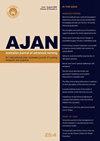护士反思性实践小组:感知和偏好、考虑和注意事项
IF 1.3
4区 医学
Q3 NURSING
引用次数: 0
摘要
目的:研究5(共6项)考察了出勤率和个人出勤偏好对反思练习小组(RPG)有效性的影响。它还探讨了参与者对RPG的好处和障碍的看法。本文在相关研究的背景下介绍了当前的研究,并试图综合这些集体发现。背景:护理可能与倦怠、继发性创伤压力(STS)和同情疲劳有关。RPG可能有助于减轻这些负面影响。研究设计/方法:这项横断面研究使用经验证的量表对190名护士(88%为女性)进行了调查,以评估职业生活质量(ProQOL)、工作满意度(JS)和心理困扰,以及RPG的感知有效性、出勤率和偏好。开放式问题探讨了出席会议的障碍和好处。结果:参加较少RPG的护士报告STS较高。那些更喜欢经常去的人也报告说STS更高,但出勤率和个人偏好并不相互影响。参加“尽可能多地分组”的护士也对RPG的有效性给予了更高的评价。其他结果指标对这两个变量都不显著。RPG的好处包括分享、支持、凝聚力、技能发展和促进联盟。障碍包括工作量、排班、时间限制和在集体环境中的不适。讨论:大多数护士报告STS较高,更喜欢更频繁地参加RPG,并认为它们更有效。参加更多RPG的护士报告STS显著降低,表明有恢复作用。与早期研究结果相比,同情满意度(CS)评分缺乏显著性。后勤问题和团队中的不适是RPG参与的障碍。与个人和工作组发展相关的感知利益。除了总体项目的研究结果外,研究结果还表明,有效的RPG、个人和工作资源以及ProQOL各方面之间存在正相关。本文章由计算机程序翻译,如有差异,请以英文原文为准。
Reflective Practice Groups for nurses: perceptions and preferences, considerations, and cautions
Objective: Study 5, from a series of six, examines the influence of attendance rates and personal attendance preferences on the effectiveness of Reflective Practice Groups (RPGs). It also explores participant perceptions regarding benefits and barriers of RPG. This article presents the current study in context of associated research and attempts to synthesise the collective findings. Background: Nursing can be associated with burnout, secondary traumatic stress (STS) and compassion fatigue. RPGs might help mitigate these negative impacts. study Design/Methods : This cross-sectional study surveyed a cohort of 190 nurses (88% female) using validated scales to assess professional quality of life (ProQOL), job satisfaction (JS) and psychological distress, alongside perceived effectiveness of RPG, attendance rates and preferences. Open-ended questions explored perceived barriers and benefits to attendance. results: Nurses who attended less RPGs reported higher STS. Those who preferred to go more frequently also reported higher STS however level of attendance and personal preference did not affect each other. Nurses attending ‘as often as groups are run’ also rated the effectiveness of RPG more highly. Other outcome measures were not significant for either variable. Perceived benefits of RPG included sharing, support, cohesiveness, skills development and facilitatory alliance. Barriers included workloads, rostering, time constraints and discomfort in a group setting. Discussion: The majority of nurses reported higher STS, preferred to attend RPGs more frequently, and rated them as more effective. Nurses who attended more RPGs reported significantly lower STS, indicating a restorative benefit. The lack of significance for Compassion Satisfaction (CS) ratings contrasted with findings of earlier studies. Logistical issues and discomfort in groups were barriers to RPG attendance. Perceived benefits related to personal and workgroup development. Alongside findings from the overarching project, results indicate a positive correlation between effective RPGs, personal and job resources, and aspects of ProQOL.
求助全文
通过发布文献求助,成功后即可免费获取论文全文。
去求助
来源期刊
CiteScore
2.30
自引率
7.10%
发文量
27
审稿时长
>12 weeks
期刊介绍:
The Australian Journal of Advanced Nursing publishes a wide variety of original research, review articles, practice guidelines, and commentary relevant to nursing and midwifery practice, health- maternity- and aged- care delivery, public health, healthcare policy and funding, nursing and midwifery education, regulation, management, economics, ethics, and research methodology. Further, the journal publishes personal narratives that convey the art and spirit of nursing and midwifery.
As the official peer-reviewed journal of the ANMF, AJAN is dedicated to publishing and showcasing scholarly material of principal relevance to national nursing and midwifery professional, clinical, research, education, management, and policy audiences. Beyond AJAN’s primarily national focus, manuscripts with regional and international scope are also welcome where their contribution to knowledge and debate on key issues for nursing, midwifery, and healthcare more broadly are significant.

 求助内容:
求助内容: 应助结果提醒方式:
应助结果提醒方式:


